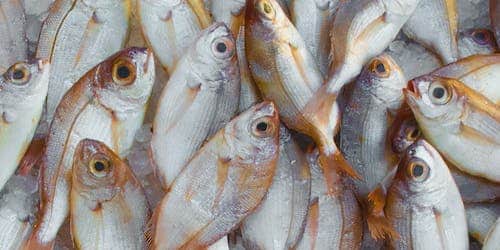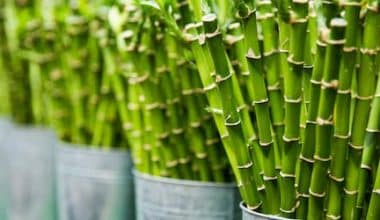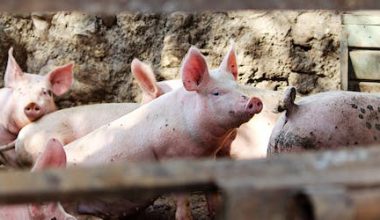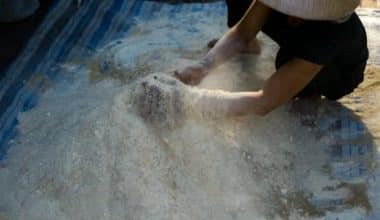The fish farming industry is quite profitable in Nigeria, and you can be successful if you are determined and use the appropriate business methods. However, as profitable as fish farming can be, a lack of basic information about the industry can result in massive losses.
Here are some of the important actions you should take before starting your business. Let’s get started.
What is a Fish?
Fish are aquatic animals that are caught for food or utilized in aquaculture. It refers to a variety of cold-blooded aquatic vertebrate animals, such as tilapia, catfish, salmon, and carp. Pisces is the scientific term for fish.
Fish are a good source of protein and omega-3 fatty acids for humans, and they are also used to make fish meal and fish oil for animal feed and industrial purposes.
What is Fish Farming in Nigeria?
Fish farming, often known as aquaculture, is the technique of producing fish for commercial reasons in controlled aquatic environments. This method entails breeding, raising, and harvesting various fish species in ponds, tanks, or other aquatic enclosures.
Due to the huge demand for fish in the market, particularly for tilapia and catfish species, fish farming has been recognized as a profitable economic enterprise and is growing increasingly popular in Nigeria and Africa.
Methods of Fish Farming
Fish farming can range from ‘backyard’ subsistence ponds to large-scale industrial operations. Input levels can be used to express farming systems.
- Extensive fish farming: Inputs such as finances and labor are typically cheap in extensive fish farming. Natural fish is the sort of feed used. The productivity of the system is low. Fertilizers are utilized to boost fertility and, as a result, fish output.
- Semi-intensive fish farming: This entails higher labor and feed expenditures as well as higher fish yields than extensive fish farming. It requires a moderate level of inputs, and the addition of fertilizer increases fish productivity.
- Intensive fish farming: This kind of fish farming requires a high level of inputs and the stocking of ponds with as many fish as possible. Supplementary feed is used in this case, with natural feed playing a limited part.
Benefits of Fish Farming
The following are some of the most common advantages of fish farming in Nigeria:
#1. Fish is Popular
Fishery goods are by far the most popular animal products on the market, accounting for more than 60% of all meat produced in Nigeria.
#2. Fish is a good source of protein.
Fish is one of the highest protein sources. It is a low-fat protein that is high in omega-3 fatty acids and vitamins D and B2 (riboflavin). Fish is also high in calcium and phosphorus, as well as minerals such as iron, zinc, iodine, magnesium, and potassium.
#3. Fish Sells Fast
Fish sells faster than any other animal product on the market and is less expensive than meat, making it the most affordable option.
#4. The fish mature Quickly
Fish grow very quickly because fish farming procedures allow farmers to boost the speed of their fish growth by feeding them certain feeds, ensuring that you harvest and sell within a short period of time.
#5. Fish Contains Omega-3
Fish is the most abundant source of Omega-3 fatty acids, which are incredibly useful to the human heart. Omega-3 helps to keep our heart and brain in excellent condition. Because the human body does not generate Omega-3 fatty acids, the only way we can acquire them is through what we consume, which is where fish comes in.
#6. Fish farming is a profitable business.
Fish aquaculture is a lucrative business. A N3 million investment in fish farming might easily result in an N4 million profit in six months with adequate planning and administration.
#7. There are no environmental hazards.
The fish farm has no negative effects on the environment. In contrast to poultry farming, you can set up a fish farm anywhere, including in a residential neighbourhood. You can easily set up a modest fish farm in your backyard if you have a nice compound and no regulatory precautions.
How To Start Fish Farming In Nigeria: Step-By-Step Guide
Here’s a step-by-step guide to starting a fish farm in Nigeria and Africa:
#1. Develop a business plan
It is a critical aspect of starting a business and should be the initial step. Writing a business plan include doing a feasibility analysis, defining goals and objectives, and conducting thorough market research to determine what is feasible.
A well-documented business plan can help you obtain loans and other financial assistance from the government and investors. The following information must be documented while drafting a fish farming business plan:
- Executive Summary
- Goals and Objectives
- Products and Services
- Location
- Market Research and Strategy
- SWOT Analysis
- Financial Projection
- Size
- Possible business expansion
If this first process sounds too daunting already, you might want to try going through our easy guide on how to write a fish farming business plan.
#2. Register your business
Following the completion of the business plan, the following step is to register your company. By registering your firm, you become a certified business owner in Nigeria and are entitled to all benefits available to registered businesses.
You will need to register with the Corporate Affairs Commission (CAC), Nigeria’s business registration body.
#3. Obtain proper training.
To be successful in fish farming, you must first acquire the necessary information, technical abilities, and training.
Training does not mean the kind of training you get from one-day seminars; real training will allow you identify healthy fish, avoid illness outbreaks, understand the type of treatment and when to administer it.
In order to run the farm efficiently, you can work as an apprentice under a seasoned fish farmer or hire an expert. You simply take some online courses, read books, and conduct extensive research using Google.
#4. Find a suitable spot for the fish pond.
After deciding on the sort of fish to breed, the following step is to choose a location for the fish pond. Because fish do not create environmental disruption, a fish pond can be located practically anyplace.
Depending on how you intend to administer it, you can either rent or buy land. You can also use any extra space in your compound that can fit two or three ponds.
#5. Construct the pond, a borehole, and overhead tank
As a beginner, it is important to consult an expert to determine the appropriate pond type for you based on where you intend to carry out farm operations.
There are three sorts of ponds: clay ponds, concrete ponds, and plastic tank ponds.
To supply water to the fish, you’ll need a borehole and an overhead tank in addition to the fish pond. Make sure you get professionals to perform this so that you don’t make any mistakes that may result in a loss in the future.
#6. Determine the species of fish you want to breed
There are countless fish species found throughout the world. According to Nigeria’s weather and environment, all of those species are unsuitable for farming. As a result, the catfish is the most commonly employed fish in this industry.
Other species of catfish exist, so you may need to consult an expert to see which one will thrive in your area.
#7. Get your fingerlings or juveniles.
Fingerlings, also known as juveniles, are the baby fish you’ll need to start your farm. Buying juveniles is the best practice if you’re just starting a fish farm in Nigeria.
Fish producers who specialize in hatching fingerlings and selling juveniles exist.
#8. Select the proper fish feed
For successful fish farming in Nigeria and increased output, adequate and nutritious additional fish feed must be fed to the fish.
In addition, various low-cost conventional or unconventional animal by-products and plant residues can be used in fish diets.
Your fish can eat one of three things.
- Fish food is made from natural ingredients. This is found in the pond naturally. Detritus, bacteria, plankton, worms, insects, snails, aquatic plants, and fish (yes, fish eat fish if they’re hungry) are all examples of this.
- Fish supplementation. This typically contains low-cost, locally available materials such as terrestrial plants, kitchen garbage, or agricultural byproducts. Supplemental feed may be beneficial, but it is not for professional fish producers (unless he includes other forms of food). Supplementary feeds are used by many people in Nigeria who are involved in fish farming. Some will prosper, while others will lose.
- Complete feed. This is a well-crafted fish feed. They’re normally packed with high-quality ingredients and nutrients, and they’re created by experts who understand the best formula for the fish at each stage.
#9. Marketing
As with other businesses, marketing is critical because you need people to know what you do.
Begin with a marketing strategy that includes the creation of a website and social media handles. Word of mouth should be used as well. Bring the message to restaurants, supermarkets, and anywhere else that needs fish.
Risks and Challenges in Fish Farming
Here are some of the risks linked to the Nigerian fish farming industry:
#1. Susceptible to Management
Fish are extremely sensitive to management, and even the smallest mistake can result in defective growth or even death, resulting in enormous revenue loss.
#2. Expensive in terms of capital
Setting up a fish farm requires significantly more capital than poultry or snail farming. Setting up a fish farm necessitates more careful planning and a significant investment. A tiny fish farm might cost up to N500,000 to start up, while larger ones can cost millions of naira.
#3. Fish is overpriced
Due to the high cost of manufacturing, farm-produced fish is more expensive than fish taken by fishermen in rivers and ponds. As a result, if there are a lot of fishermen’s fish in the market, you can have a hard time selling them since customers prefer the cheaper ones.
#4. No Byproduct
In contrast to poultry, where even the smallest drop can be harvested and sold to other farmers for a profit, there is no byproduct in fishing. All you get from fishing is the flesh.
Types Of Fish You Can Farm
Now that we’ve seen the benefits and risks of fish farming let’s determine which species of fish we want to produce. The following are some of the most popular fish species appropriate for aquaculture.
#1. Cat Fish
Despite the fact that catfish is not the most popular fish in Nigeria, it is by far the most cultivated. One advantage of catfish is that it is one of the simplest fish species to produce. As a result, people instinctively gravitate toward the fish species that they discover to be the easiest to cultivate.
#2. Tilapia
Tilapia is a fish species that dwells in fresh shallow water and is the second most popular fish in Nigeria’s aquaculture business. This Tilapia is a popular fish in the Nigerian market because it reproduces quickly and grows quickly.
#3. Mackerel (Titus)
This is by far the most popular fish in the Nigerian market, although it is unfortunate that it is not farmed. All Mackerel fish are “wild caught,” but some farmers in Nigeria are thinking about generating artificial salty water that is similar to seawater, where mackerel can only thrive. Can this deep blue sea fish be artificially cultivated? Only time will tell, but for now, you must concentrate on catfish and tilapia.
Is Fish Farming a Profitable Business in Nigeria?
Yes, commercial fish farming is a lucrative industry in Nigeria. You can start this business for profit.
How Much Does it Cost to Start a Fish Farm in Nigeria?
In reality, determining the exact amount is impossible. Because actual costs are determined by a variety of elements such as land cost, pond type, pond size, number of stock, kind of production, equipment cost, and other amenities. In general, the cost ranges between 0.5 and 4 million.
Which Fish is Best for Farming in Nigeria?
Catfish is Nigeria’s most farmed fish species. It is extremely popular and grows relatively quickly in comparison to many other fish species.
How Profitable is Fish Farming Business in Nigeria?
Commercial fish farming is a thriving industry in Nigeria. You will shortly receive your investment money back. Please talk to some established farmers in your neighborhood to find out how much money they generate from this industry.
What is the Problem of Fish Farming in Nigeria?
In Nigeria, there are certain issues with the fish farming industry. High feeding expenses, poor water quality, a scarcity of better seeds, ineffective technical management, and other issues are common.
Where is the Largest Fish Market in Nigeria?
The largest fish market in Lagos state is the Oluwo fish market, commonly known as the Epe fish market. It may be found at Epe, Lagos State, Nigeria.
What is the Largest Fish Farm in Nigeria?
Dickem Farms is Nigeria’s largest fish farm, specializing in the production of aquaculture products such as fish feed, fish feed machines, fish meal, herbal fish supplements, collapsible mobile fish ponds, and water purifiers.
Conclusion
Fish, as we all know, is a healthy alternative to meat. As a result, a growing number of people have chosen a healthier option to pork, beef, turkey, and chicken, which is attributed to the growing concern for nutritious food in most of our kitchens.
- Fish Farming Business Plan in Nigeria: Step-by-Step Guide
- Become a business mentor
- How To Start Bamboo Farming in Nigeria 2023
- MOBILE MARKETING: Definition, Example & All You Need To Know
- BUSINESS FARMING: Profitable Ideas on How to Start a Small Farm Business






